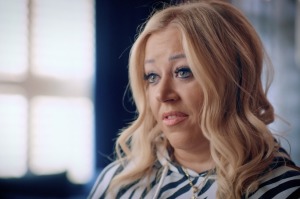The surprising key to real social change

Sidney and Beatrice Webb were British economists and sociologists in the mid-19th and early 20th centuries. Both were strong social activists and are still regarded as the authors of the British welfare structure.
Like many in Europe at that time, they practiced a familial Christianity early in life, but then ended up abandoning the faith when they reached their adult years. Interestingly, as Beatrice, in particular, became frustrated watching their attempts at social change not produce her desired end results, she admitted their foundation had been laid on a faulty assumption.
Detailing her revelation, Webb wrote: “In my diary in 1890 I wrote, “I have staked all on the essential goodness of human nature. Now, 35 years later, I realize how permanent are the evil impulses and evil instincts in man and how little you can count on changing them, like the greed for wealth or power, by any change in the social machinery. We must ask better things of human nature, but will we get a response? Without this, how will we get better social institutions? No amount of knowledge or science will be of any avail unless we can curb the bad impulses of the human heart. And can this be done without the faith in the authoritative ethics associated with the spirit of love?””
In other words, Beatrice Webb realized you can’t start the process of becoming good, either at a personal or societal level, until you recognize — just as the Bible teaches — that you’re bad.
The bad news first
Amazon’s new The Lord of the Rings: The Rings of Power series opens with the following line: “Nothing is evil in the beginning.”
And according to Scripture, that was true. However, at some point, the most beautiful and intelligent of God’s creations fell (Is. 14:12-14), followed by humankind (Gen. 3), and now, sad to say, from a human being-born standpoint — everything is evil in the beginning.
In the Psalms, David writes, “Behold, I was brought forth in iniquity, and in sin my mother conceived me” (Ps. 51:5), with Jeremiah concurring: “The heart is more deceitful than all else and is desperately sick; who can understand it” (Jer. 17:9)?
Disagreeing is our secular society that works overtime through the media telling us that we’re good (unless, of course, you’re on the ‘wrong’ side of their political aisle). Supporting them are psychologists like Abraham Maslow, who said, “As far as I know we just don't have any intrinsic instincts for evil.” Endorsing such thinking is his psychologist-partner-in-crime, Carl Rogers, who stated, “I do not find that … evil is inherent in human nature.”
But even unbelievers like Beatrice Webb end up seeing that these affirmations about the innate goodness of humanity are false. Given time, those who are intellectually honest agree with John who wrote, “If we say that we have no sin, we are deceiving ourselves and the truth is not in us” (1 John 1:8), and Charles Spurgeon who bluntly said, “You cannot slander human nature; it is worse than words can paint it.”
Accepting this reality may sting at first, but as Webb noted, it’s critical for making the climb up to where we can recognize and obey, as she calls it, “authoritative ethics” that govern both our hearts and society.
Now the good news
Orval Hobart Mowrer, a past president of the American psychologist society, highlighted the danger Webb cited as well as how we take the next step forward when he wrote: “For several decades, we psychologists looked upon the whole matter of sin and moral accountability as a great incubus, and acclaimed our liberation from it as epoch-making. But at length, we have discovered that to be free from sin is also to have the excuse of being sick, rather than being sinful … In becoming amoral, ethically neutral, and free, we have cut the very roots of our being”.
Without realizing it, Mowrer was echoing Isaiah who penned thousands of years ago, “For all of us have become like one who is unclean, and all our righteous deeds are like a filthy garment; and all of us wither like a leaf, and our iniquities, like the wind, take us away” (Is. 64:6).
If our iniquities have taken us away, then what brings us back? An admission of those wrongdoings, followed by personal repentance and a spiritual rebirth in each human heart.
While things can certainly look grim, the good news is, as John Calvin puts it: “Christ is much more powerful to save than Adam was to ruin.”
Christ’s death on the cross removes our penalty for sin while the new birth stops its continuation and brings salvation, thus blessing each individual and the society in which they live. Paul puts it this way: “For if while we were enemies we were reconciled to God through the death of His Son, much more, having been reconciled, we shall be saved by His life” (Rom. 5:10).
The awesomeness of this Gospel is that it agrees with and directly addresses what Beatrice Webb observed: “No amount of knowledge or science will be of any avail unless we can curb the bad impulses of the human heart.”
And, once that happens, it’s possible for society to assume the goodness of each individual Christian. This is why C. S. Lewis says, in his essay Meditation on the Third Commandment, that the primary politics believers should be playing is one where, “He who converts his neighbor has performed the most practical Christian political act of all.”
Robin Schumacher is an accomplished software executive and Christian apologist who has written many articles, authored and contributed to several Christian books, appeared on nationally syndicated radio programs, and presented at apologetic events. He holds a BS in Business, Master's in Christian apologetics and a Ph.D. in New Testament. His latest book is, A Confident Faith: Winning people to Christ with the apologetics of the Apostle Paul.



























